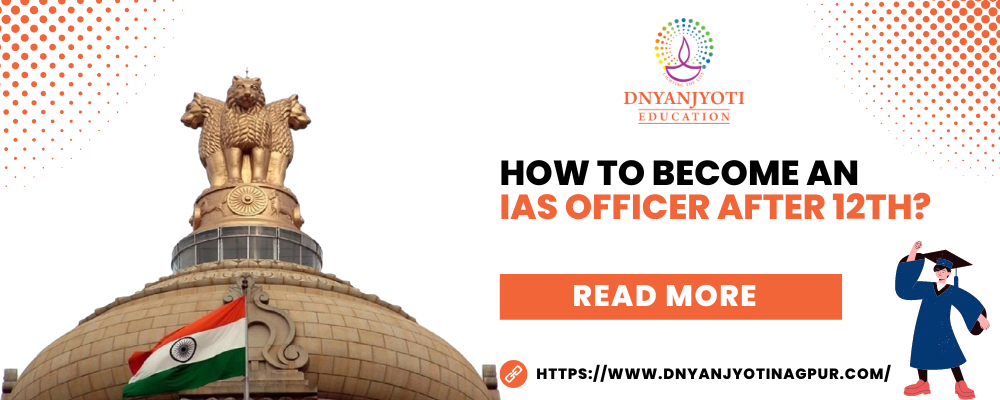Is It Possible To Become An IAS Officer After 12th?
No, Every year to pick and also recruit qualified candidates for the function of an IAS Officer, the Union Public Service Commission (UPSC) performs the public services evaluation.
There are two essential standards for applying for the IAS Test –
You require to have a Degree from an identified college/university, and, The minimum age needs to be 21 years.
So, if you aspire to come to be an IAS officer after completing 12th grade, right here are the quick steps you can comply with:
Step 1: Choose The Right Undergraduate Training Course
After finishing 12th quality, you can choose any undergraduate training course of your option, but it is advised to select a program that straightens with the UPSC curriculum. Topics such as background, public administration, economics, political science and sociology can be handy in preparing for the test.
Step 2: Complete Your Undergraduate Degree
You must complete your bachelor’s degree from a recognized university. You can also seek a postgraduate degree if you want, yet it is not mandatory.
Step 3: Begin Preparing For The UPSC Exam
The following action is to start planning for the UPSC exam. The UPSC test is a three-stage procedure including the initial, keys, and meeting. The exam tests prospects’ understanding of current events, history, geography, politics, and also aptitude. You can prepare for the exam by checking out newspapers, as well as books, as well as signing up with coaching courses.
Step 4: Select UPSC Optional Subject Carefully
In the UPSC Mains examination, there are a total amount of 9 papers, and out of these, documents VI & VII are optional papers. To stand for these 2 optional papers, candidates can choose any one optional topic from a checklist of 48 optional topics offered by UPSC. As the marks acquired in the general examination are counted in the last benefit, candidates require to pick their optional subject intelligently.
Step 5: Obtain The UPSC Examination
When you feel great regarding your prep work, you can apply for the UPSC examination. The application forms are offered online on the UPSC website.
Step 6: Clear The UPSC Exam
The last step is to get rid of the UPSC examination. The examination is tough and calls for a lot of effort and dedication. Yet if you are determined and also devoted, you can get rid of the examination and also end up being an IAS policeman.
How To Start UPSC Prep UPSC Work After the 12th?- Essential Steps
If you have established your eyes on the objective of coming to be an IAS Officer after the 12th, you will certainly have even more time to plan for the civil services examination as your age would be anywhere between 18-20 years as compared to other candidates. The UPSC test prep work needs appropriate instructions as well as assistance in addition to hard work. Here are some ideas to assist you to start preparation for UPSC after the 12th.
Step 1: Prepare Your Frame of Mind
Before recognizing just how to plan for UPSC after the 12th, you should first prepare your frame of mind for the UPSC prep work Journey.
To do well in the UPSC exam, you need to be emotionally solid as well as fit. You need to establish your objectives high and also handle your time as necessary.
Step 2: Understand the UPSC Qualification & Examination Pattern
Prospects thinking to start their prep work for UPSC after the 12th have to clearly recognize the eligibility as well as the syllabus as stated by the UPSC.
UPSC Eligibility Standard
- The prospect should be a citizen of India and also need to be a grad of a government-recognized university or in the last year of college graduation.
- The minimum age of a candidate need to be 21 years as well as the optimum of 32 years (Gen/EWS), 35 years (OBC), 37 years (SC/ST), as well as 42 years (PWD).
Get comprehensive information right here: UPSC Eligibility
UPSC Examination Pattern
The UPSC test is carried out in 3 stages- Prelims, Keys, and also Interview stage. Allow’s take an introduction of these 3 phases below.
- Prelims Exam Stage– The preliminary exam is an unbiased kind of examination as well as contains two papers known as GS Paper 1 & GS Paper 2 (CSAT).
- Mains Exam Phase– Prospects that get rid of the prelims exam are qualified for the keys phase. The keys examination is descriptive kind as well as includes a total of 9 documents out of which 1 is a Compulsory Indian language paper, 1 English paper, 1 Essay paper, 4 GS Documents and 2 optional papers. Candidates have the choice to select 1 optional topic from the listing of 48 optional topics.
- Interview Process– Prospects that clear the mains test are qualified for the final meeting round.
Obtain extensive details below: UPSC Test Pattern
Step 3: Get A Bachelor’s Degree
- The main and also primary important requirement to be eligible for the UPSC exam is to have a bachelor’s degree from a govt identified university.
- If you understand your IAS ambition, you must pick your area of proficiency (degree) as necessary.
- UPSC Test Syllabus comprise of topics such as Mathematics, History, Location, Polity and also more. So, the prospect has to make certain to choose a degree that overlaps these topics.
Step 4: Make A Routine of reading and Analysis of Newspapers
- Along with the NCERT Books, and reference books, the papers also work as important research study materials for UPSC existing affairs.
- As Current Affairs are very important in UPSC IAS Exams, candidates require to begin checking out the papers for UPSC on an everyday basis and also develop analysis habits on a wide array of basic recognition topics, vital nationwide & international occasions, as well as a lot more.
Step 5: Choose An Best Optional Subject For UPSC Mains
- You have the liberty to select any kind of one optional subject from the listing of 48 optional subjects stated by the UPSC.
- Optional topics could either raise the outcomes or might deteriorate them. So, the optional topic needs to be selected intelligently and also the topics chosen should be of one’s niche based on their rate of interest.
- If you have a good command over the optional subject then it is comparatively much easier to rack up well in these subjects which would inevitably raise the whole UPSC score.
You can check the best optional subject for UPSC here!
Step 6: Start working on your writing skills
- Unlike choosing the answers in the prelims test, you have to create detailed answers generally test.
- You require to exercise response structure and reveal your ideas within a specific word restriction in an offered time of around 8 mins for each concern.
- This requires a great deal of methods, so it is very important to develop composing skills on a vast variety of topics.
Step 7: Prepare a strategy
- After the 12th, the prospects would certainly have 3-4 years of time in hand. So, it’s mandatory to require the most effective prep work strategy.
- Preparing a technique and also managing time is totally subjective and one should initially evaluate the whole rate and nature of the evaluation and after that start preparing accordingly.
- As a beginner, you can check out UPSC Prep work Technique for Beginners here!
Step 8: Choose A Guidance Platform
- UPSC IAS is quite back-breaking and one requires guidance in order to target the arrow at the bull’s eye.
- To spend your time and efforts in the ideal instructions, it’s of the essence to go for an innovative Support System such as Dnyanjyoti Nagpur, a leading EdTech platform available in Nagpur .
Step 9: Keep Up To Date With UPSC notification
- Remain updated with all the UPSC authorities updates and recognize the curriculum in addition to the paper pattern.
- Begin your preparation for UPSC after 12th by starting with the subjects that you discover manageable.
- Find out whatever about UPSC consisting of physical needs, clinical qualification, training, staff appropriations and also more.
IAS Officer After 12th?-FAQs
How can I join IAS after 12th?
To qualify as an IAS officer, one has to clear the UPSC civil services exam. Post their 12th, it typically takes a minimum of three years to finish graduation and be eligible. While some clear the exam in their first try, others may need multiple attempts to achieve a high score.
What is the qualification for IAS?
For the IAS exam, candidates need a university degree. The age limit for the UPSC exam is 21 to 32 years. General Category and EWS candidates can attempt the exam up to 6 times.
Is IAS exam difficult?
The UPSC Civil Services Exam is known for being extremely challenging, both in India and around the world, because of its vast syllabus, varied question styles, subjective marking, intense competition, and the requirement for in-depth knowledge across various subjects, including current events.
What is the salary of IAS?
The salary of an Indian Administrative Service (IAS) officer varies based on their rank and years of service. The starting salary for an entry-level IAS officer, including allowances, can range from approximately INR 56,100 to INR 1,32,000 per month. It’s important to note that this figure can change due to government policies, pay commission recommendations, and other factors. Additionally, IAS officers receive various other benefits and allowances, such as housing, transportation, and healthcare, which can significantly supplement their salary.
Which degree is best for IAS?
A Bachelor of Arts (BA) is often considered the ideal degree for aspiring IAS officers because it covers a lot of the UPSC CSE syllabus, focusing on humanities and social sciences, which are closely aligned with the exam’s content.
Is IAS a stressful job?
Working as an IAS officer involves teamwork with politicians, other bureaucrats, and the public. The ever-changing nature of the job and factors beyond one’s control can sometimes result in stress and frustration.
What is age limit for UPSC?
For the UPSC exam, General category applicants must be between 21 and 32 years old. To qualify, candidates should be at least 21 and not exceed 32 years of age by August 1, 2024.


